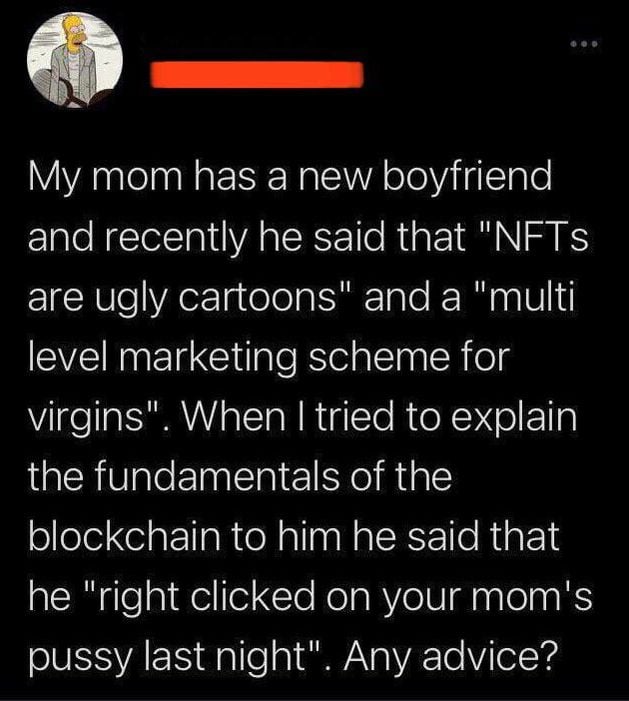this post was submitted on 13 Nov 2024
971 points (98.2% liked)
People Twitter
5533 readers
653 users here now
People tweeting stuff. We allow tweets from anyone.
RULES:
- Mark NSFW content.
- No doxxing people.
- Must be a pic of the tweet or similar. No direct links to the tweet.
- No bullying or international politcs
- Be excellent to each other.
- Provide an archived link to the tweet (or similar) being shown if it's a major figure or a politician.
founded 2 years ago
MODERATORS
you are viewing a single comment's thread
view the rest of the comments
view the rest of the comments

Essentially, verifiability (the token exists on the blockchain), de-duplication (each token can only exist once on the blockchain), and proof of ownership (only one account number can be associated with each token on the blockchain). There's nothing wrong with this idea in a technical sense and it could be useful for some things.
But... the transaction process is computationally expensive. For the transaction to be trustworthy, many nodes on the blockchain network must process the same transaction, which creates a whole bunch of issues around network scaling and majority control and real-world resource usage (electricity, computer hardware, network infrastructure, cooling, etc).
And beyond that, the nature of society and economics created a community around this unregulated financial market that was filled with... well, exactly the kind of people you'd expect would be most interested in an unregulated financial market - scammers, speculative investors, thieves, illegal bankers, exploitatitive gambling operators, money launderers, and criminals looking to get paid without the government noticing.
The technology can solve some interesting problems around verifying that a particular digital file is unique/original (which can be useful, because it's extremely easy to make copies of digital information) but it creates a long list of other problems as a side effect.
Almost every single non-theoretical problem that blockchains solve is something we've already solved. And most of the problems you could solve with a blockchains are severely limited by data-size limitations.
It would be amazing if I could decentrally store, say, a movie or videogame on a blockchain. Then, I could sell access tokens, would the owners could resell as they wanted. That's a GREAT way to use blockchain tech, because people would always have access, and they could use or sell the keys as they wanted. It doens't work though, because in the real world, that movie doesn't fit on the blockchain, it'll just be a link the a secondary source, and the whole thing falls apart.
And that's really the problem. Blockchains have a lot of nifty uses, but it almost always immediately falls apart around the edges, where it touches on non-blockchain tech, or, even worse, physical objects.